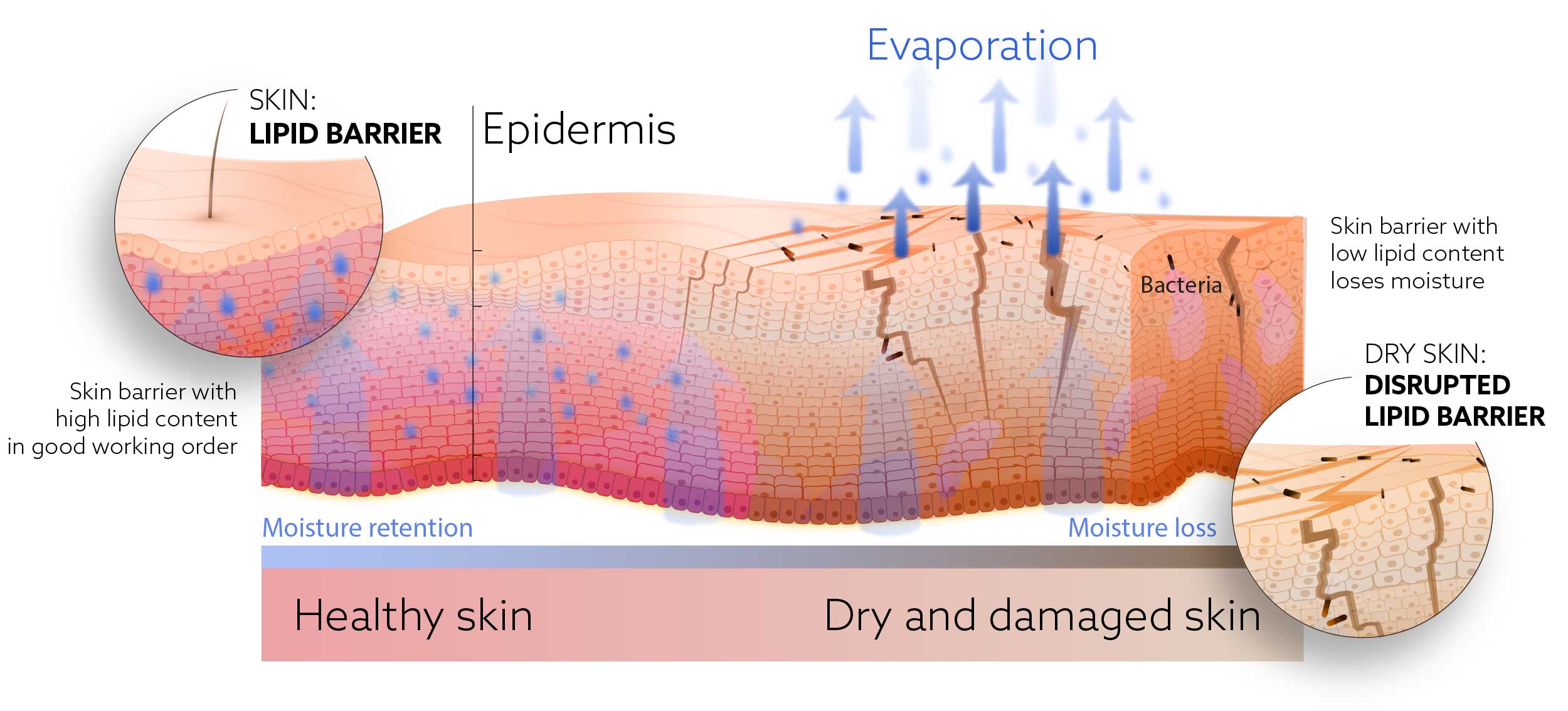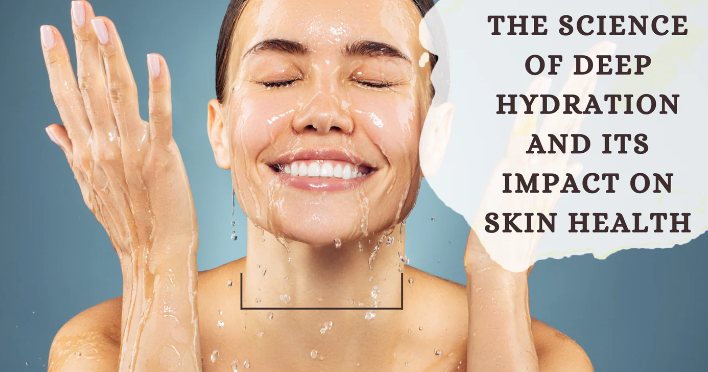Achieving radiant, healthy skin is a goal many of us share and we often go to great lengths to find the right skincare products, perfect our diet and protect our skin from the sun. While these aspects are vital, there is one often overlooked yet essential element in the quest for glowing skin: hydration. The role of hydration in maintaining skin health cannot be overstated, as it influences everything from texture and elasticity to overall appearance and the skin’s ability to function as a protective barrier.

The Importance of Hydration for Skin Health
Water is the foundation of life and our skin being the largest organ of the body, is no exception to this rule. Proper hydration is crucial for maintaining the skin’s elasticity, which is the skin’s ability to stretch and return to its original shape. This elasticity is what helps keep the skin smooth and less prone to developing fine lines and wrinkles. When the skin is well-hydrated, it is more resilient and better equipped to combat the visible signs of aging, allowing you to maintain a youthful, vibrant appearance.
Beyond its role in maintaining elasticity, hydration is also key to achieving that desired natural glow. When you are adequately hydrated, blood circulation to the skin improves, delivering oxygen and essential nutrients to skin cells. This enhanced circulation gives the skin a more vibrant, healthy appearance, often described as a “glow.” Conversely, when the skin is dehydrated, it can appear dull and dry, losing that radiant quality that is often associated with good health and vitality.
Water also plays a critical role in the body’s detoxification process, including that of the skin. Every day, our bodies are exposed to toxins, whether from the environment, food or stress. The body relies on water to flush out these toxins and this includes the skin. Proper hydration aids in the efficient elimination of waste and impurities, which can help reduce the occurrence of acne and other skin issues. Remember, you can view our previous acne advice article on our website here. Without sufficient water intake, toxins may build up potentially leading to clogged pores, inflammation and breakouts.
The skin’s barrier function, which acts as a protective shield against environmental stressors such as pollution, UV radiation and bacteria, is also heavily dependent on hydration. This barrier helps to retain moisture and protect the deeper layers of skin. When the skin is well-hydrated the barrier function is stronger, making the skin less susceptible to dryness, irritation and sensitivity. A compromised barrier can lead to a host of skin problems, including chronic dryness, redness and even conditions like eczema.
Interestingly, there is a counterintuitive aspect to dehydration: it can actually lead to increased oil production. When the skin is deprived of moisture, it may respond by producing more oils to prevent further water loss. This overproduction of oil can clog pores, leading to blackheads, whiteheads cand acne. By maintaining enough hydration, you can help regulate your skin’s oil levels, reducing the likelihood of breakouts and promoting a clearer complexion.

Achieving Ideal Hydration
While drinking water is the most straightforward way to stay hydrated, achieving optimal hydration for your skin involves a multifaceted approach that includes dietary choices, lifestyle habits and skincare routines.
One of the simplest yet most effective ways to support skin hydration is by incorporating water-rich foods into your diet. Fruits and vegetables like cucumbers, watermelon, strawberries, oranges and celery are not only packed with water but also provide essential vitamins, antioxidants and minerals that support overall skin health. These hydrating foods help to replenish your body’s water levels from the inside out, contributing to a plumper, more hydrated complexion.
Another often overlooked factor in skin hydration is the environment. During colder months or in dry climates, indoor heating systems can strip moisture from the air, leading to dry, dehydrated skin. Using a humidifier can help maintain moisture levels in the air, which in turn benefits your skin by preventing it from becoming too dry. This is particularly important for those with sensitive or dry skin types, who may be more prone to dehydration-related skin issues during winter.
Your skincare routine also plays a critical role in maintaining skin hydration. Choosing products that contain hydrating ingredients is key to ensuring your skin remains moisturised throughout the day. Ingredients like hyaluronic acid, glycerine and aloe vera are particularly effective at attracting and retaining moisture in the skin. Hyaluronic acid, for example, is a powerful humectant that can hold up to 1,000 times its weight in water, making it an excellent ingredient for boosting skin hydration. Applying a moisturiser with these ingredients immediately after cleansing can help lock in moisture, creating a protective barrier that prevents water loss and keeps your skin soft and supple.
Along with topical treatments, hydration should also be a consideration in your overall wellness practices. For instance, engaging in regular physical activity, getting enough sleep and managing stress are all factors that can influence your body’s hydration levels. Exercise increases circulation, which can enhance the delivery of hydration to your skin cells, while adequate sleep allows your body to repair and regenerate, further supporting skin health. Stress management is also crucial, as chronic stress can lead to dehydration through increased production of stress hormones like cortisol, which can negatively impact your skin.
When Hydration Isn’t Enough
While hydration is undeniably fundamental to maintaining healthy skin, it’s important to recognise that it may not be a cure-all for every skin issue. Some skin conditions, such as severe dryness, eczema, psoriasis or persistent acne, may require more specialised care. These conditions can be complex and may involve factors beyond hydration, such as genetics, allergies, hormonal imbalances or environmental triggers.
If you’re dealing with ongoing skin concerns that do not improve with increased hydration or over-the-counter products, it may be time to seek professional advice. A dermatologist can assess your skin’s condition and provide tailored recommendations that address the root cause of your issues. This might include prescription treatments, lifestyle changes or advanced skincare therapies designed to restore your skin’s health.
If you’re experiencing skin issues that go beyond what hydration and basic skincare can solve, don’t hesitate to seek expert care. Ask your GP for a referral to Novus Health, where you can consult with one of our specialist dermatologists. Our team is dedicated to helping you achieve and maintain healthy, glowing skin through personalised care and cutting-edge treatments.


